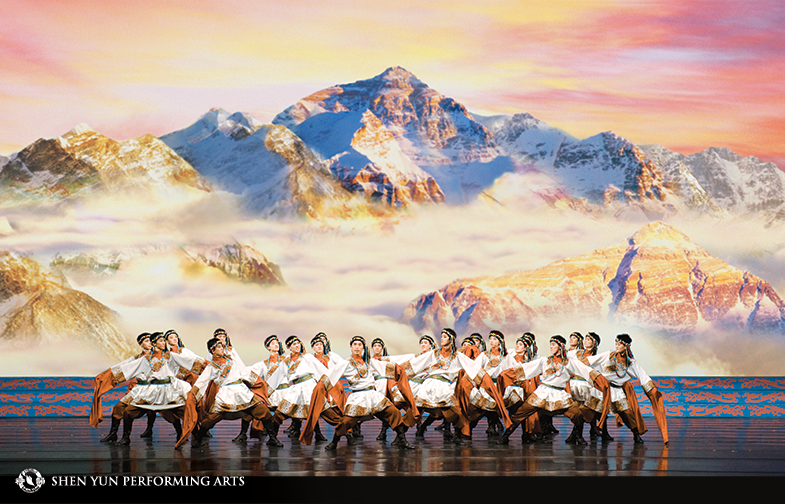讀江淹賦
699pic.com
Your Custom Text Here

699pic.com

——記於共匪獄中抄写法輪大法經文

Tranquil image for this poem inspired by ancient Chinese music "春江花月夜" - "A Moonlit Night on the Spring River" (Played with Vertical Bamboo flute/Chinese Bamboo Xiao) (Picture source 699pic.com)
"Inspired by ancient Chinese music "春江花月夜" - "A Moonlit Night on the Spring River" (Played with Vertical Bamboo flute/Chinese Bamboo Xiao)
* a shadow crane: In Chinese history, legend has it that when Taoists succeeded in their cultivation, they could become immortals. Sometimes they transformed themselves into a beautiful crane and flew into the heavens, or rode upon a crane and flew away.
Translated by Jennifer Zeng and Damian Robin

Pexels.com

Benny Zhang Studio.
注釋:
①七十二峰雪滿山:黃山七十二峰
②往來天都一日還:三大主峰之天都峰
③上有奇松出雲海:黃山四絶之一奇松
④下有九龍探百川:黃山三大名瀑之「九龍瀑」
⑤墨花點破太白筆:黃山奇峰「夢筆生花」傳為太白之筆化成
⑥道場曾煉軒轅丹:黃山傳為軒轅黃帝煉丹處,故稱黃山
⑦梵天擲下青蓮座:三大主峰之蓮花峰
⑧光明之頂不可攀:三大主峰之光明頂
Translated by Jennifer Zeng and Damian Robin
Footnotes:
1. Huangshan: https://en.wikipedia.org/wiki/Huangshan(Chinese: 黄山, literal meaning: Yellow Mountain) is a mountain range in southern Anhui Province in eastern China. Vegetation on the range is thickest below 1,100 meters (3,600 ft), with trees growing up to the tree line at 1,800 meters (5,900 ft). The area is well known for its scenery, sunsets, peculiarly-shaped granite peaks, Huangshan pine trees, hot springs, winter snow, and views of the clouds from above. Huangshan is a frequent subject of traditional Chinese paintings and literature, as well as modern photography. It is a UNESCO World Heritage Site, and one of China's major tourist destinations.
2. The Nine Dragon Waterfall is one of the three most famous waterfalls in Huangshan.
3. Li Bai (701–762) was a Chinese poet acclaimed from his own day to the present as a genius and romantic figure who took traditional poetic forms to new heights. He is regarded by many as the greatest poet in Chinese history.
4. Dream Flower Pen (Meng Bi Sheng Hua) is located within northeast of Yellow Mountain and close to the Bijia Peak. The elevation is 1,640 meters. A stone stands elevated with a round bottom cuspate top, like a brush pen used for calligraphy. Legend has it that once Li Bai dreamed that flowers blossomed on top of his brush. There is also another story that when Li Bai once visited Mount Huangshan, he was invited by a monk to write a poem. After he finished writing, everyone was so amazed by his calligraphy and poem. In his excitement (not without drinking some rice wine produced and provided by the monks), Li Bai threw away his brush which turned into a peak of Huangshan which is now called "夢筆生花Meng Bi Sheng Hua", or "Dream Flower Pen", meaning the brush blossomed in a dream. "Meng Bi Sheng Hua" also evolved into a Chinese idiom referring to very talented writers or writings.
5. Legend has it that once the Yellow Emperor made his elixir, or dan, on Mount Huangshan. Huang means yellow, Shan means mountain. That's how Mount Huangshan (Yellow Mountain) gained its name: It was named after the Yellow Emperor (Huang Di). The Yellow Emperor was
one of Three Sovereigns and Five Emperors in ancient China, living some 5000 years ago. He was believed to have succeeded in cultivation, become an immortal and rose to heaven on a dragon. Chinese people now call themselves "descendants of the Yellow Emperor".
6. Lotus Peak is one of the three main peaks of Huangshan. Buddhas are believed to sit on lotus petals (like a seat).
7. The Bright Peak is one of the three main peaks of Huangshan.

wikipedia.org
序:靖康之難後,二帝北狩,趙構南逃。老將宗澤留守東京,聯結諸路義兵,痛擊金人。河北人心大震,唯宗爺爺馬首是瞻。宗澤遂請趙構迴鑾,章二十餘上,皆石沉大海。宗澤心急如焚,疽發於背,兩月竟亡。彌留之際,諸將前來問疾,唯勉諸公殲敵。又嘆曰:「出師未捷身先死,長使英雄淚滿襟」,連呼「過河」三聲而亡,未有一語言及家事。宗澤死後,戰勢急轉直下,南渡遂成定局,趙構為金人所追,逃亡海上。讀史至此,感而愤之,悲而壮之,泣而歌之,遂为之志。

Clouds ocean of Huang Mountain. (Benny Zhang Studio)
Translated by Jennifer Zeng.

詩歌靈感來自張炳乾 (Benny Zhang Studio)以上攝影作品,照片攝於江蘇江寧. "Pear Blossom" was inspired by this photo taken in Jiangning, Jiangsu Province, China by Benny Zhang.
* The Qingming or Ching Ming Festival, also known as Tomb-Sweeping Day in English, is a traditional Chinese festival on the first day of the fifth solar term of the traditional Chinese lunisolar calendar. This makes it the 15th day after the Spring Equinox, either 4 or 5 April in a given year. Other common translations include Chinese Memorial Day and Ancestors' Day.
Translated by Jennifer Zeng and Damian Robin

wikipedia.org

Translated by Jennifer Zeng.
Edited by Damian Robin.

Ariel Tian, Art Director of White Cloud Poetry Society, at Central Park. Photo by Benny Zhang Studio.

Photo by Benny Zhang Studio.

Photo by Benny Zhang Studio.

Photo credit 699pic.com


Photo by Benny Zhang Studio at Prospect Park, New York.
Translated by Jennifer Zeng.

Spring snow at Central Park. Photo by Benny Zhang Studio.
Translated by Jennifer Zeng
Edited by Damian Robin
– 聽神韻交響樂曲目【優曇婆羅花】
– Original poem Inspired by "The Mystical Udumbara" by Shen Yun Symphony Orchestra.
Translated by Jennifer Zeng.

Photo credit ShenYun.com
– 2018中國新年期間通過新唐人電視台再睹神韻晚會《藏鼓豪情》

Photo by Benny Zhang Studio.
*Francolins are terrestrial (though not flightless) birds; they feed on insects, vegetable matter and seeds.
Translated by Jennifer Zeng and Damian Robin

Photo by Benny Zhang Studio.